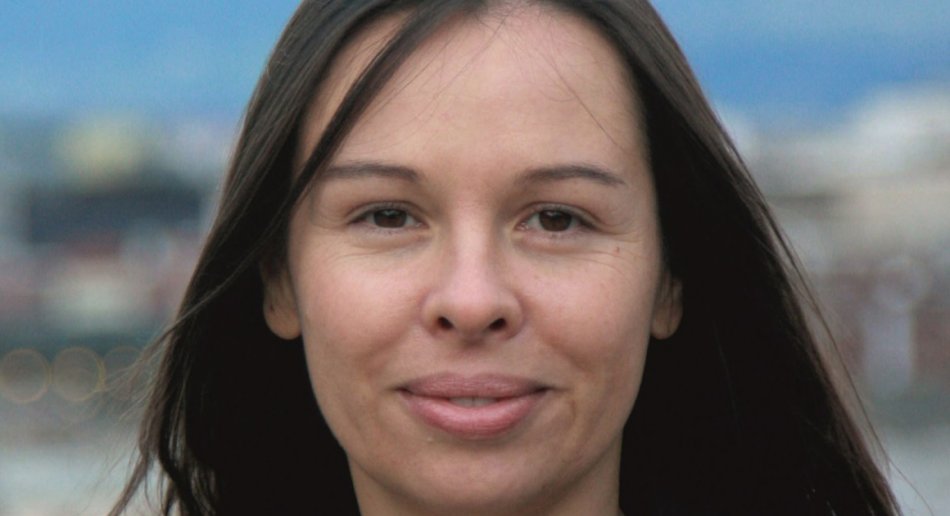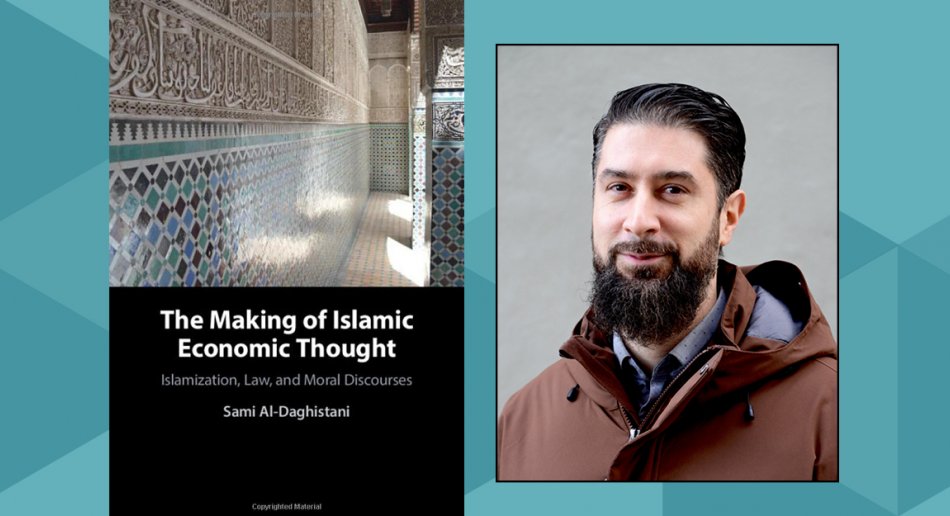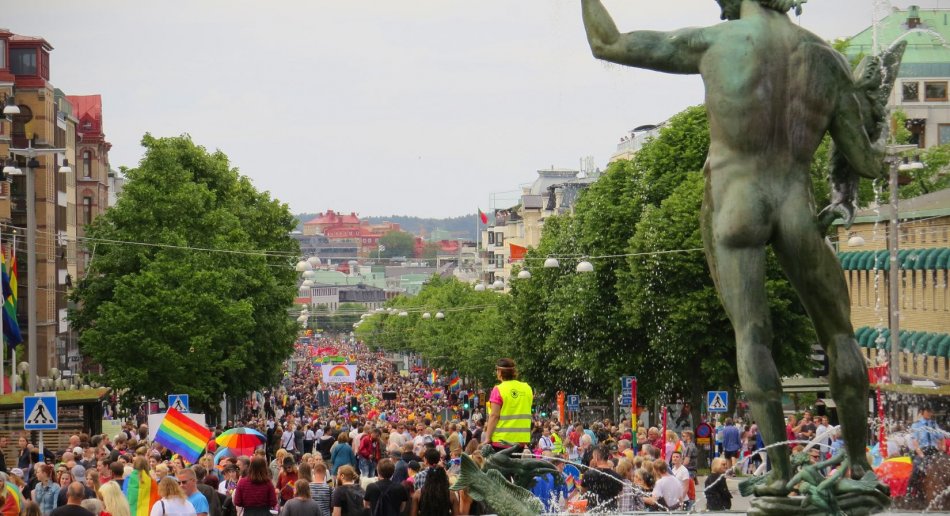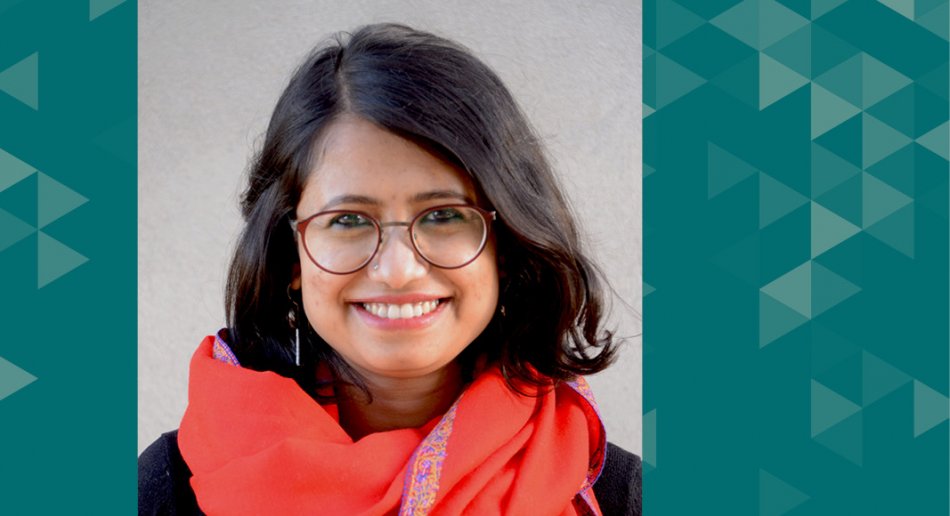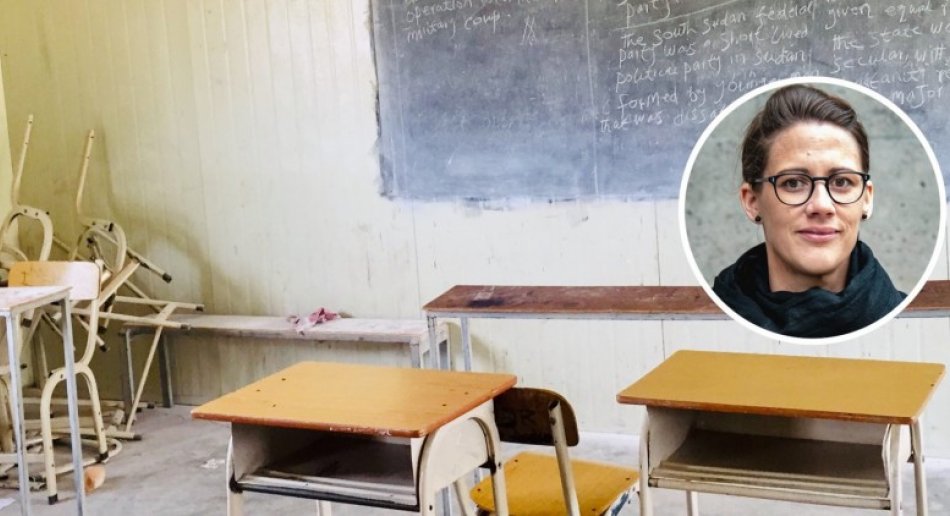
Making Enemies through History Classes
– History classes in South Sudan present the former enemies in the north in exclusively negative forms of expression, says Associate Professor Merethe Skårås.
By: Lena S. Sandvik
Associate Professor of Education at MF, Merethe Skårås, studies education and conflict. Her main focus is on how history is taught in South Sudan and on the role of education in co-existence and reconciliation in a new country.
History – A Sensitive Subject
Skårås has chosen to look more closely at history since this often is a subject that is seen as important for nation-building. This is also the case in South Sudan. She has observed classroom teaching and has interviewed students and teachers.
– South Sudan is a young country that is not only in the process of creating new narratives and rallying points, but is also in the midst of a civil war with roots reaching far into the past. Because of this, history is also a sensitive subject. A subject that creates enemies and allies. Currently, a new curriculum is being rolled out and the country's first history books and other textbooks for secondary education are written and will soon be in use, says Skårås. She is finished with her classroom research and now she will start to analyze these new textbooks.
Negative Expressions
Skårås has found that history classes in South Sudan present the former enemies in the north in exclusively negative forms of expression.
– Their neighbors in today's Sudan are referred to as «Arabs», «Northerners» and as «the regime in Khartoum» that has marginalized the South Sudanese and prevented them access to things like education and development. These negative presentations are undiscussed truths that no one questions and they are communicated by both teachers and students. Internal conflicts between different ethnic groups in the South are not discussed in the classroom, but the majority of students and teachers talk freely about this outside the classroom.
In this way, Skårås has identified large differences between which narratives are accessable within the classroom and which are accessable outside of it.
– There is a much greater diversity of narratives outside the classroom than within the classroom. Power within the classroom lies to a large degree with the teacher and the political and historical war-context limits the space within which it is possible to maneuver when teaching.
Education – A Unique Tool
Skårås points out that education is an arena where values and knowledge are passed on to new generations.
– Education is therefore a unique tool for building peace and reconciliation or for creating discord and conflict. It is important to examine what happens when curricula and practice meet, what teachers do in the classroom and how students interact and experience the knowledge taught at school.
She thinks that such research deserves special attention in countries where there has been conflict and a process of nation-building is underway. But believes it is also important in more stable, peaceful countries, like Norway.
– It makes a difference what is communicated at school and how it is conveyed. We see an increasing polarization of the political climate and an increase of extreme views in the world and in Norway. It is therefore important to find out how and what role education has in this connection.
Research on Education
In the past few years, Education in Emergencies has developed as a separate field of research within education. In connection with this, there is much research on education following war and conflict as well.
– Many post conflict countries and divided societies use education strategically to develop the country and raise the younger generations. In countries like Rwanda, South Africa and Guatemala, a lot of research is done on education and reconciliation and the role of education, says Skårås.
She says that questions about what is to be included in the history curriculum and how the histories of different groups are to be presented are many and disputed.
– When it comes to Europe, we find a good deal of research from the period after World War II and after the Balkan War. This research shows, unfortunately, that there still are several examples of segregation in education. For example, school children in Bosnia and Herzegovina sit in separate classrooms and learn different versions of history, in line with their own ethnic affiliations.
Critical Thinking
The new curriculum in Norway emphasizes critical thinking.
– This is also a skill that is high up on the global agenda for education policy. It is also prominent in the new curriculum in South Sudan. It is important to see the context of education in a world that is becoming increasingly globalized when we study the role of education for the future, says Merethe Skårås.
Research news
